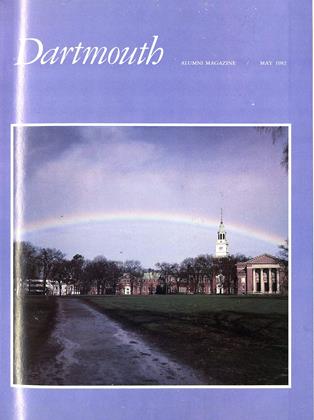Once again we have the perplexing question: Should we curtail normall civil liberties to protect ourselves against those terrorists who use violence and the threat of violence to achieve their political ends?
It comes at a time when terrorism abroad has almost become an accepted condition of life — witness the Dozier kidnapping and the Moro killing in Italy; the activities of the I.R.A. in Ireland; the P.L.O. in the Middle East; the BaaderMeinhof Gang in Germany; the F.A.L.N. in Puerto Rico; assassination squads in Brazil; and assorted terrorist atrocities in Latin America.
The gloom-sayers have long predicted the arrival of political terrorism on a wholesale scale in the United States. Fortunately, it is not yet endemic, although there is evidence that it may not be far off: i.e., in the recent assassination of the Turkish Consul General in Los Angeles by self-described Armenian terrorists and in a wave of terrorist activities across the country with antecedents in the nearly centuryold Serbian-Croatian disputes.
So far, an adequate response to this activity has been provided by our regular law enforcement mechanisms. Arrests have been made, prosecutions undertaken.
And that's the way things should remain, until such time as a serious emergency exists.
Drastic attempts now to curtail the potential of serious violence in the future without an emergency now can only tend to prove to be counterproductive. The danger is that such efforts, almost necessarily involving the curtailment of constitutional rights, are apt to be directed not only against potential terrorists but against unpopular minority groups whose basic dedication is to change, oftentimes through means which fall short of violence and terrorism but are odious to the rest of the community.
Indeed, it may well be that because of our Constitution's free-speech-and-assembly protections and the accessibility of Amerian political office to minority groups, terrorism has not gathered steam here. Look what has happened to Tom Hayden and Bobby Seale.
Should a national emergency develop, such as a world war, we have precedent for the necessary curtailment of rights. At the same time, our nation's experience in past wars should have taught us some painful lessons; the internment of the JapaneseAmericans in World War II can only leave us with a sense of shame, as well as wonderment that no one at the time was asking, "Is this really necessary?"
And that, as Bishop implies, is the second prong of the answer: We should not curtail our civil liberties until such time as we establish that a real emergency exists, and then we should use the least possible power adequate to the end proposed.
It s not too dissimilar to the debates which range through criminal justice circles today as we try to deal better with the wave of increasing violent crime.
District Attorney, Los Angeles County
 View Full Issue
View Full Issue
More From This Issue
-
 Feature
FeatureWhat keeps them going? A 'Mystic Glue' Perhaps
May 1982 By Dana Cook Grossman -
 Feature
FeatureTerrorism and the Niceties of Justice
May 1982 By Joseph W. Bishop Jr. -
 Feature
FeatureImpacts simply positive
May 1982 -
 Article
ArticleIn the Wide, Wide World
May 1982 By Peter Smith -
 Class Notes
Class Notes1964
May 1982 By Alexander D. Varkas Jr. -
 Class Notes
Class Notes1954
May 1982 By John L. Gillespie








